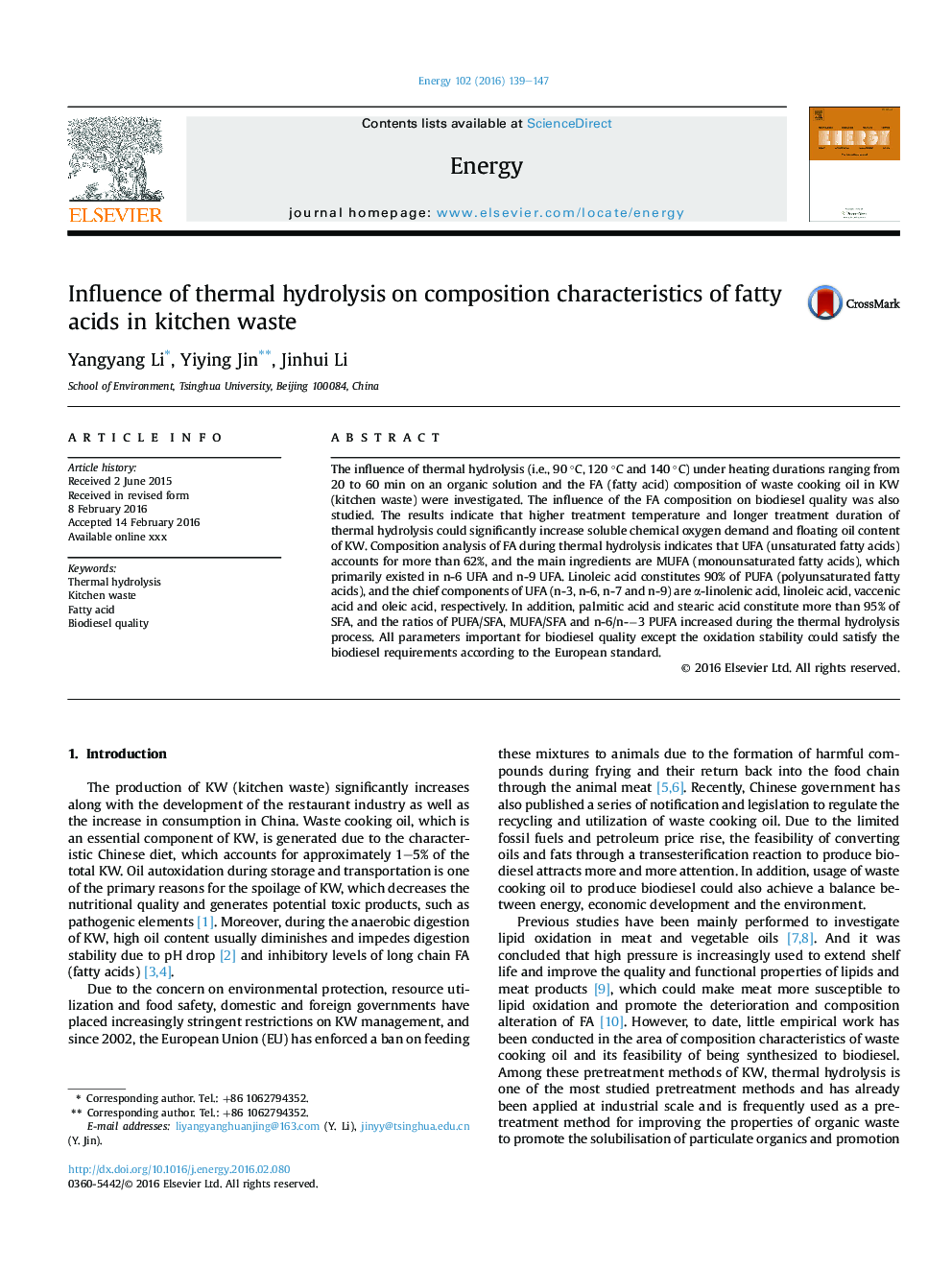| کد مقاله | کد نشریه | سال انتشار | مقاله انگلیسی | نسخه تمام متن |
|---|---|---|---|---|
| 8073977 | 1521446 | 2016 | 9 صفحه PDF | دانلود رایگان |
عنوان انگلیسی مقاله ISI
Influence of thermal hydrolysis on composition characteristics of fatty acids in kitchen waste
ترجمه فارسی عنوان
تأثیر هیدرولیز حرارتی بر خصوصیات ترکیبات اسیدهای چرب در زباله های آشپزخانه
دانلود مقاله + سفارش ترجمه
دانلود مقاله ISI انگلیسی
رایگان برای ایرانیان
کلمات کلیدی
هیدرولیز حرارتی، زباله آشپزخانه، اسید چرب، کیفیت بیودیزل،
موضوعات مرتبط
مهندسی و علوم پایه
مهندسی انرژی
انرژی (عمومی)
چکیده انگلیسی
The influence of thermal hydrolysis (i.e., 90 °C, 120 °C and 140 °C) under heating durations ranging from 20 to 60 min on an organic solution and the FA (fatty acid) composition of waste cooking oil in KW (kitchen waste) were investigated. The influence of the FA composition on biodiesel quality was also studied. The results indicate that higher treatment temperature and longer treatment duration of thermal hydrolysis could significantly increase soluble chemical oxygen demand and floating oil content of KW. Composition analysis of FA during thermal hydrolysis indicates that UFA (unsaturated fatty acids) accounts for more than 62%, and the main ingredients are MUFA (monounsaturated fatty acids), which primarily existed in n-6 UFA and n-9 UFA. Linoleic acid constitutes 90% of PUFA (polyunsaturated fatty acids), and the chief components of UFA (n-3, n-6, n-7 and n-9) are α-linolenic acid, linoleic acid, vaccenic acid and oleic acid, respectively. In addition, palmitic acid and stearic acid constitute more than 95% of SFA, and the ratios of PUFA/SFA, MUFA/SFA and n-6/n-â3 PUFA increased during the thermal hydrolysis process. All parameters important for biodiesel quality except the oxidation stability could satisfy the biodiesel requirements according to the European standard.
ناشر
Database: Elsevier - ScienceDirect (ساینس دایرکت)
Journal: Energy - Volume 102, 1 May 2016, Pages 139-147
Journal: Energy - Volume 102, 1 May 2016, Pages 139-147
نویسندگان
Yangyang Li, Yiying Jin, Jinhui Li,
